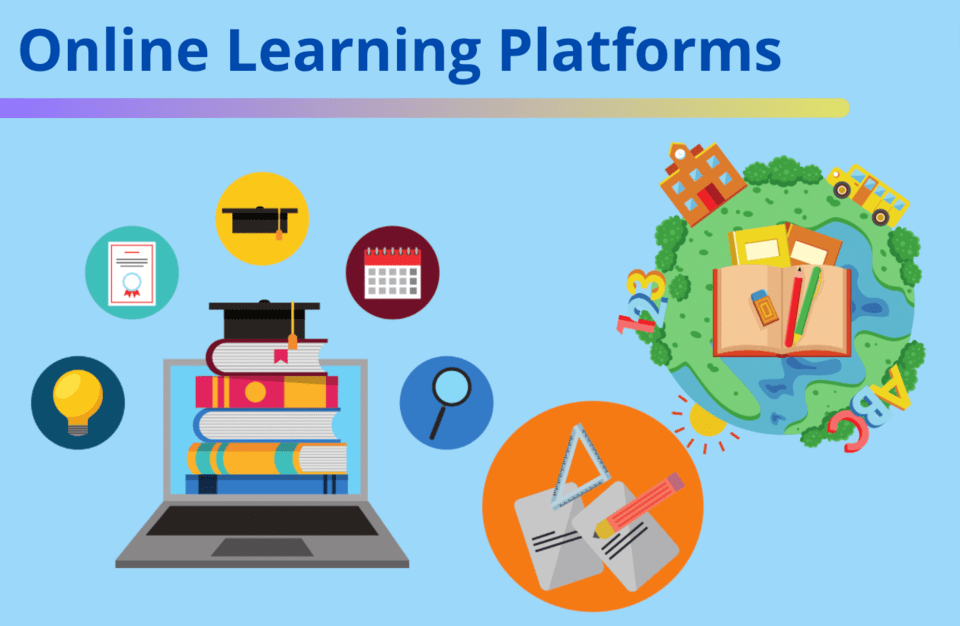Checking Out the Relevance of E-Learning for Kids in the Modern Educational Landscape
E-learning platforms give exceptional availability and adaptability, catering to varied knowing designs while promoting necessary digital literacy skills. As we consider the transformative impact of modern technology on education, it is essential to discover how e-learning can further enhance finding out results and cooperation among young students.
Benefits of E-Learning
E-learning uses numerous benefits for youngsters, reinventing the means they acquire understanding and abilities. One of the key benefits is ease of access. E-learning systems make it possible for youngsters to accessibility instructional material from virtually anywhere, breaking geographical obstacles and promoting continuous discovering. This is especially advantageous for students in remote or underserved areas, ensuring they have equal opportunities to quality education.

Additionally, e-learning promotes technological proficiency. As children navigate electronic systems, they obtain vital computer system skills and come to be skilled at utilizing various software and tools, which are crucial in today's electronic age. Moreover, e-learning can incorporate interactive components such as video clips, video games, and quizzes, making the learning experience more pleasurable and interesting.
Additionally, e-learning sustains varied discovering demands through personalized content, satisfying private choices and promoting inclusivity. In amount, e-learning offers a flexible, inclusive, and engaging strategy to contemporary education and learning.
Enhancing Knowing Outcomes
Structure on the benefits highlighted, boosting discovering results via e-learning is a multifaceted venture that leverages modern technology to improve educational effectiveness. E-learning platforms provide individualized learning experiences, enabling customized instructional techniques that accommodate individual trainee demands. Flexible learning innovations examine student performance in real-time, offering instant comments and changing the trouble of tasks appropriately. This makes sure that pupils continue to be involved and tested, advertising a deeper understanding of the material.
Moreover, e-learning facilitates accessibility to a substantial array of resources, consisting of interactive simulations, academic games, and multimedia web content. These tools can elucidate intricate principles and make discovering more appealing, consequently enhancing retention prices. The assimilation of analytics additionally enables teachers to track progress, recognize finding out voids, and carry out targeted treatments.
Partnership and communication are additionally significantly boosted with e-learning. Online classrooms and conversation forums supply chances for peer communication and collective problem-solving, which are crucial for enhancing learned concepts. Additionally, the versatility of e-learning allows for asynchronous discovering, accommodating various understanding rates and schedules.
Cultivating Crucial Assuming
While improving learning end results is a significant advantage of e-learning, an additional extensive effect depends on its capacity to promote critical reasoning amongst trainees. E-learning systems frequently integrate interactive tasks, simulations, and problem-solving tasks that call for students to examine details, examine numerous outcomes, and make reasoned decisions. These tasks exceed rote memorization, urging students to engage deeply with material and use their understanding in functional circumstances.
Furthermore, the self-paced nature of e-learning equips pupils to check out subjects at their very own rate, advertising a reflective approach to understanding. This autonomy allows learners to question assumptions, look for added resources, and draw connections between different principles, thereby nurturing a state of mind tailored towards vital evaluation.
On top of that, e-learning devices commonly include collaborative features such as conversation online forums and team jobs, which better stimulate crucial thinking. Engaging with peers in an electronic environment needs trainees this post to verbalize their thoughts clearly, think about alternate point of views, and construct proven disagreements. These interactions are indispensable in creating critical thinking abilities that are crucial for scholastic success and future specialist undertakings.
Therefore, e-learning sticks out not only for its ability to boost educational outcomes but additionally for its considerable function in establishing essential, independent thinkers.
Digital Proficiency Skills
Exactly how can students prosper in a digital globe without grasping electronic literacy abilities? As e-learning becomes progressively widespread, the necessity for trainees to develop these abilities can not be overstated - Education and study for children and kids.
Digital literacy makes it possible for students to effectively locate, examine, and utilize information, promoting a setting for self-directed understanding. It likewise outfits them with the capacity to recognize credible sources from unreliable ones, an essential skill in an age where false information is widespread. Furthermore, by familiarizing themselves with electronic devices, students can improve their imagination and cooperation with numerous online platforms and multimedia jobs.
Additionally, digital proficiency is inherently connected to future career readiness. Employers across markets Click Here look for individuals who are skilled at making use of electronic modern technologies to solve issues and introduce. Very early direct exposure to these abilities with e-learning platforms placements pupils to be affordable in an international work market. For that reason, incorporating electronic proficiency right into the academic curriculum is not simply beneficial yet imperative for nurturing versatile, future-ready people.
Future of Education
As we gaze into the future of education and learning, it ends up being evident that technical developments will play a pivotal duty in shaping the learning landscape. E-learning systems are readied to progress, becoming a lot more customized and interactive, dealing with the special needs of each pupil. Man-made Intelligence (AI) will likely be at the forefront of this makeover, allowing adaptive knowing experiences that can determine and address specific strengths and weak points in real-time.

On top of that, the ubiquity of web accessibility will facilitate global classrooms, damaging down geographical barriers and promoting cross-cultural understanding experiences. This connectivity will make it possible for trainees from varied histories to work together, cultivating a more thorough and comprehensive instructional experience.
Nonetheless, these developments additionally require a focus on electronic citizenship and cybersecurity. Educators and policymakers should work with each other to make certain that children are Education and study for children and kids furnished with the abilities to browse this electronic world properly and securely. The future of education, thus, rests on harmonizing technological development with moral considerations.
Final Thought
E-learning's combination right into modern-day education and learning is essential, providing enhanced accessibility, customized discovering experiences, and fostering crucial thinking. The dynamic nature of e-learning addresses diverse discovering styles and engages pupils interactively, guaranteeing they are furnished with necessary skills for future difficulties.
E-learning platforms offer personalized finding out experiences, allowing for tailored educational approaches that provide to individual student requirements.While boosting finding out outcomes is a substantial benefit of e-learning, an additional extensive influence lies in its capacity to cultivate critical thinking amongst trainees. As e-learning ends up being increasingly widespread, the requirement for students to create these abilities can not be overemphasized.
Very early direct exposure to these skills through e-learning platforms placements trainees to be competitive in an international task market. The dynamic nature of e-learning addresses varied learning designs and engages students interactively, guaranteeing they are furnished with necessary abilities for future challenges.